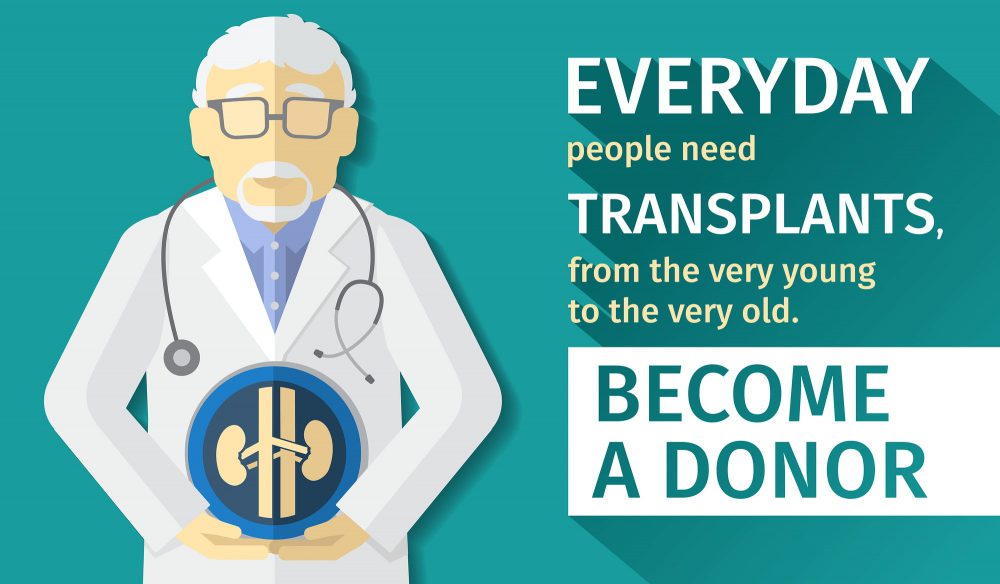
The stark reality for many people waiting to receive an organ transplant is that they just might die before a compatible donor is found.
But a new procedure for kidney transplants recently detailed in The New England Journal of Medicine may bring renewed hope.
While there are currently more than 100,000 people on the national waiting list for a kidney, the number of actual transplant operations performed in 2015 was just 17,878, according to a March report by the Associated Press.
Kidney Desensitization
Part of the problem stems from acceptability. Many patients desperate for a donor kidney are denied a match because their immune system would reject the transplanted organ.
According to the NEJM study published in March, however, doctors have successfully learned how to alter an individual’s immune system to allow for acceptance even if the donor organ is incompatible.
It’s called desensitization, and it could signal a game-changing moment for transplant procedures moving forward.
Dr. Jeffrey Berns, president of the National Kidney Foundation and a kidney specialist at the University of Pennsylvania’s Perelman School of Medicine, told The New York Times in March that desensitization “has the potential to save many lives.”
Per the study, researchers found that nearly half of the people on the kidney transplant list have antibodies that would attack a transplanted organ, and nearly 20% could never be matched with a donor organ.
Click to Become an Organ Donor!
According to Dr. Dorry Segev, lead author of the study and a transplant surgeon at Johns Hopkins University School of Medicine, many people suffering kidney failure simply give up when told their bodies would reject a donor organ. They abandon the waiting list and settle for dialysis.
Desensitization filters the problem antibodies out before replacing them with other, protective antibodies to merge with new antibodies regenerated by a patient’s immune system.
It’s not cheap, though.
The process can cost $30,000 and relies on drugs not approved specifically for transplant purposes. And that’s before the transplant cost, which can be about $100,000. Kidney experts, however, argue it’s a worthwhile expense given that dialysis can cost $70,000 per year for the remainder of a patient’s life.
Kidney Transplant Waiting List
The process also requires a living donor, and about two weeks of treatment prior to the transplant operation.
Historically, despite willingness from relatives and friends to donate a kidney, patients could eventually be told their living donor was incompatible.
Segev, in an interview with the Associated Press, said desensitization can help eliminate that issue entirely.
“You don’t need a compatible living donor to make a transplant happen today,” Segev said. “You just need a living donor.”
Segev’s study team looked at records for more than 1,000 patients across the U.S. who received transplants from incompatible living donors and compared those findings against other patients who kept on the waiting list for a match from a deceased donor.
What the study found was short of remarkable: Of those still waiting for a transplant, 44% had survived. Of those who received a transplant from a deceased donor, 63% had survived. But among the patients who chose desensitization and received a transplant from an incompatible living donor, 76% had survived.










Comments are closed.